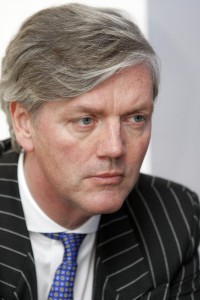Intending to focus his energies on his struggling Swedish car operations, Victor Muller is selling off his tiny Dutch sports car company, Spyker.
Muller, who purchased Saab Automobile just over a years ago, will be paid $21 million for Spyker, but could get about $25 million more over the next six years, depending on the success the brand has under its new owners.
The purchaser is Russian businessman Vladimir Antonov, who had previously been Spyker’s chairman and key investor, with a 29.9% stake. Antonov was forced out of the company when Muller when Muller began discussing the acquisition of Saab from its former owner, General Motors, which refused to negotiate while the Russian oligarch was involved.
Originally founded a century ago, Spyker collapsed in 1925, the name revived by Muller a decade ago. It produces an assortment of sleek supercars priced around $200,000 apiece. In 2009, the last year for which sales numbers are available, the company, based in Zeewolde, Netherlands, sold a total of 36 vehicles.
Spyker went public in 2004 and has consistently lost money since then.
“This transaction will allow Spyker Cars N.V. to focus on the Saab Automobile business exclusively, will eliminate the requirement for us to make further capital investment in the Spyker business and will reduce our debt,” Spyker Chairman Hans Hugenholtz said in a statement.
The company plans to change its name shortly to reflect its new focus solely on the Saab brand.
The Swedish brand had been struggling for a number of years before General Motors went into bankruptcy, in May 2009. To qualify for a federal bailout the maker agreed to eliminate four key brands, including Saturn, Hummer, Pontiac and Saab, either by selling them or shutting them down. As the year progressed, it appeared no qualified buyer would emerge and Saab would be shuttered.
GM began to “wind down” the company, dismissing its board and closing its assembly plant, which meant that the new owners would wait seven weeks before production could resume.
That’s one reason 2010 sales totaled barely 36,000 worldwide. Muller and his team are hoping for a significant increase in volume this year, and have suggested they could push Saab back into the black on sales volumes in the mid 70,000 to 80,000 range.

